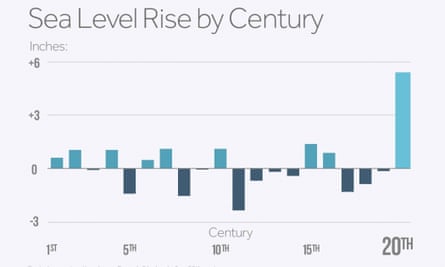The vast majority of global companies have no obligation to cut their greenhouse gas emissions. Still, many of them try. But the overall efforts aren’t nearly enough to help deal with the potential devastating impacts of climate change, from increasing droughts and wildfires to the mass extinction of species. Critics say businesses need to do more, including setting more ambitious carbon reduction targets and proving they can hit those goals. Now, an increasing number of environmental consulting and advocacy groups are using science-based targets to describe the types of goals they say companies and businesses need to achieve in order to make a difference.
But what are science-based targets? Here is what you need to know:
What are “science-based targets”?
The term refers to carbon emission reduction goals that are line with the levels that a United Nations climate report said will be required to keep global warming in check. To help raise awareness of corporate climate action, the UN Global Compact has formed an initiative – simply titled Science Based Targets – in collaboration with the Carbon Disclosure Project (CDP), the World Resources Institute and the World Wildlife Fund to help guide companies in enforcing these targets.
Why set science-based targets?
The UN climate report projects that manmade emissions will likely increase the global temperature 3.7C to 4.8C from the average temperature before Industrial Revolution by the end of this century due to manmade emissions. Just yesterday, new studies showed that global warming is causing sea levels to rise much faster than they have in the past 28 centuries. Scientific evidence has already prompted political leaders to agree that limiting the temperature rise to 2C would help to minimize the environmental and social devastation. The recent Paris climate agreement calls for limiting the increase to 1.5C. Business should use science to set benchmarks for their environmental initiatives as well.

How are science-based targets set?
There isn’t one definitive way to come up with a good target. The Science Based Targets initiative has outlined models and factors, such as taking into consideration the company’s contribution to the global gross domestic product, that companies should include in calculating the actual and projected emissions over time, and steps to reduce them. The initiative reviews and approves the targets set by participating companies, which have two years after signing up to come up with a game plan.
Who are the believers?
So far, the initiative has approved plans from 12 companies, including Dell, Kellogg, NRG Energy and Pfizer. It has commitment from more than 100 companies to set new goals. Some of the companies, such as General Mills, plan to reduce emissions from the goods and services they purchase and their delivery and distribution operations.
What’s next?
Setting ambitious targets is one thing, meeting them is another. Whether companies can meet the voluntary targets they created is far from certain. Critics also have pointed out that some companies grossly under-report their carbon footprint. Meanwhile, the public will most likely remain skeptical – particularly considering the actions of some companies like Volkswagen, which fail to follow environmental laws.

Comments (…)
Sign in or create your Guardian account to join the discussion